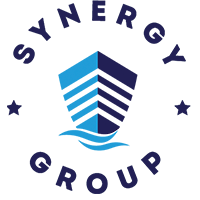Maritime Training

MAST: Advanced maritime training
For safety, efficiency and skill development
Marine Advanced Simulation and Training (MAST) is a state of the art training facility. Established in 2014 as a joint venture with MOL, it handles all training requirements, including technical operation, regulation, compliance, and industry best practice. At MAST, training is not just about compliance – it is also about honing skills and developing positive attitudes.
The centre offers a blend of classroom and simulator-based training, with ship-specific familiarisation training for all seafarers on a self-learning platform.
Training takes place at various levels of competence, according to industry and owner requirements, with courses and curricula geared to higher proficiency among seagoing staff, and there are also continuous professional development courses for shore-based superintendents.
A Full Mission Integrated Bridge Simulator, capable of recreating any navigational scenario, helps officers to master ship handling skills, and MAST regularly conducts company- specific courses in Bridge Team and Bridge Resource Management, as well as specific command orientation courses, where future Masters are evaluated by technical assessors and also psychometrists, and holistic assessments help Manning and Operation teams to manage postings.
The training team has created and delivered bespoke ship handling simulator courses to train officers on large vessels, such as container ships and VLCCs, and in operating amid high tidal ranges and other navigational limitations.
An advanced Engine Room simulator trains engineers in efficient and safe operations and improves their emergency response. Such courses are mandatory for all our seagoing staff before taking on increased responsibilities for the first time.
The challenges of cargo handling and planning cargo operations are addressed by an advanced Liquid Cargo Handling Simulator, which can provide training for an Aframax, an IMO Type II chemical carrier, a refrigerated gas carrier, an LNG membrane vessel and a VLCC. General cargo handling training is provided for all vessel types, according to client-specific deliverables, and there are advanced chemical and gas carrier courses.
Another significant achievement in specific training is the development of a DNV and GL approved course for Very Large Ethane Carriers. This incorporates learning from both LPG and LNG simulators and has so far trained over 200 officers and engineers, helping our seafarers to deliver operational and safety excellence on the most modern ships.
As well as a generic ECDIS simulator, MAST also has type-specific modules covering all major ECDIS manufacturers, thus providing a one-stop solution for the majority of training needs.
This centre has handled the training requirements of a great many owners since its inception in 2014, catering to the constantly changing regulatory requirements and industry best practices, and on average trains about 300 seafarers a month, year-round.
Courses offered include:
Classroom-based:
- Safety officers
- Risk management and incident investigation
- SIRE and vetting
- Behaviour-based safety
- Officer safety
- Crew safety
- Voluntary Environmental Compliance Plan
- Gas carriers – operational and management levels
Simulator and Classroom-based:
- Bridge team management
- Command orientation for Chief Officers
- Bridge resource management
- Large vessel handling – VLCCs and Container Ships
- Engine Room simulator for Watchkeeping Engineers.
- Orientation for Chief Engineers
- Liquid cargo handling – tankers
- Advanced chemical tanker course for officers
- Chemical carrier course for ratings
- Specialised oil tanker safety – management level
- Oil tanker basics – operational level
- ME – C
Read about Synergy Marine Group’s comprehensive crew management services.


